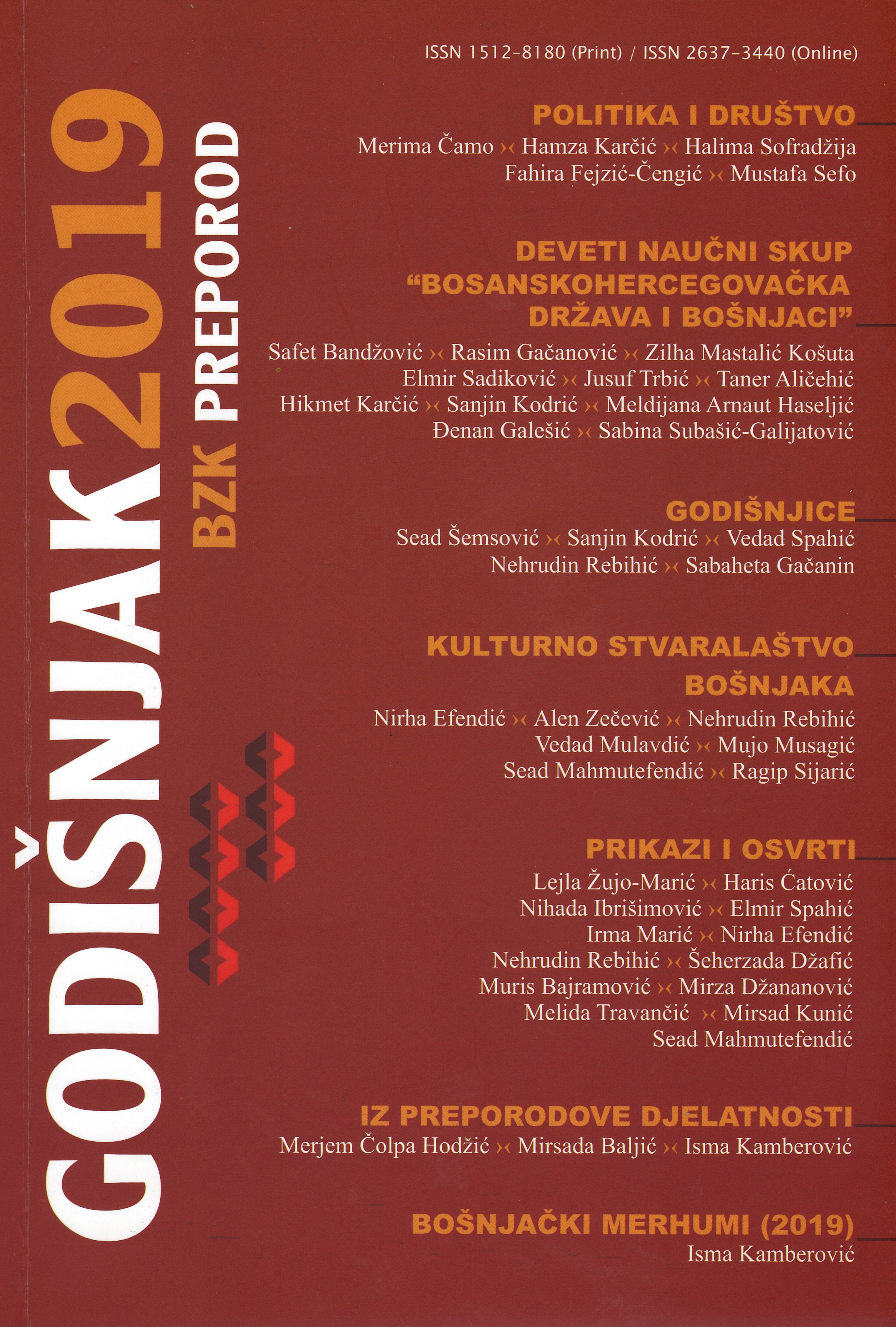Društvena (re)distribucija ruralnih resursa između dva svjetska rata na prostoru Bosne i Hercegovine i njena aktuelizacija
SOCIAL RE(DISTRIBUTION) OF RURAL RESOURCES BETWEEN THE TWO WORLD WARS IN BOSNIA AND HERZEGOVINA AND ITS ACTUALIZATION
Author(s): Merima ČamoSubject(s): Law, Constitution, Jurisprudence, Economic history, Political history, Rural and urban sociology, Interwar Period (1920 - 1939)
Published by: Bošnjačka zajednica kulture "Preporod"
Keywords: village; town; agrarian reform; industrialization; realization; expropriation; law; restitution;
Summary/Abstract: After the WWI, Bosnia-Herzegovina is becoming part of the new state union, Kingdom of Serbs, Croats and Slovenes, later the Kingdom of Yugoslavia. Expectations and hopes of poor B&H population, that the new monarchist state would bring prosperity soon were replaced by social resignation caused by relatively unsuccessful agrarian reform and huge world economic crisis, which rapidly decreased existential conditions of majority of population, both in towns and in villages.A rural resources redistribution through land reform was marked by the violent and unjust seizure of property by the Muslim population, leading to economic imbalance, conflicts, social tension, and different conditions and lifestyles in the countryside.The sharp exploitation of the peasants by the usurers, the constant weakening of the economic fundamentals of the country mediated by the interests of the ruling class, the change of ownership structure and small holdings that produced only to meet basic living needs, forced the peasants to find new additional sources of income. One part of the rural population migrates to towns searching for jobs in the industry, while the other part moves to European and overseas industrial centers. Although in this period there have not been mass migrations from villages to towns, the fact is that the time between wars is characterized by "rural logic", which caused tensions between villages and towns. During this historical period, with the spatial turmoil on the village-city relationship, some processes repeating in BiH reality have been observed which relate to the disposal of property belonging to Bosnia and Herzegovina through violation of law perpetrated by the institutions of the Republika Srpska Entity. The short text provides an overview of the consequences of agrarian reform through a series of (un) legal solutions that leave no room for restitution.
Journal: Godišnjak Bošnjačke zajednice kulture »Preporod«
- Issue Year: 2019
- Issue No: 1
- Page Range: 17-30
- Page Count: 14
- Language: Bosnian

